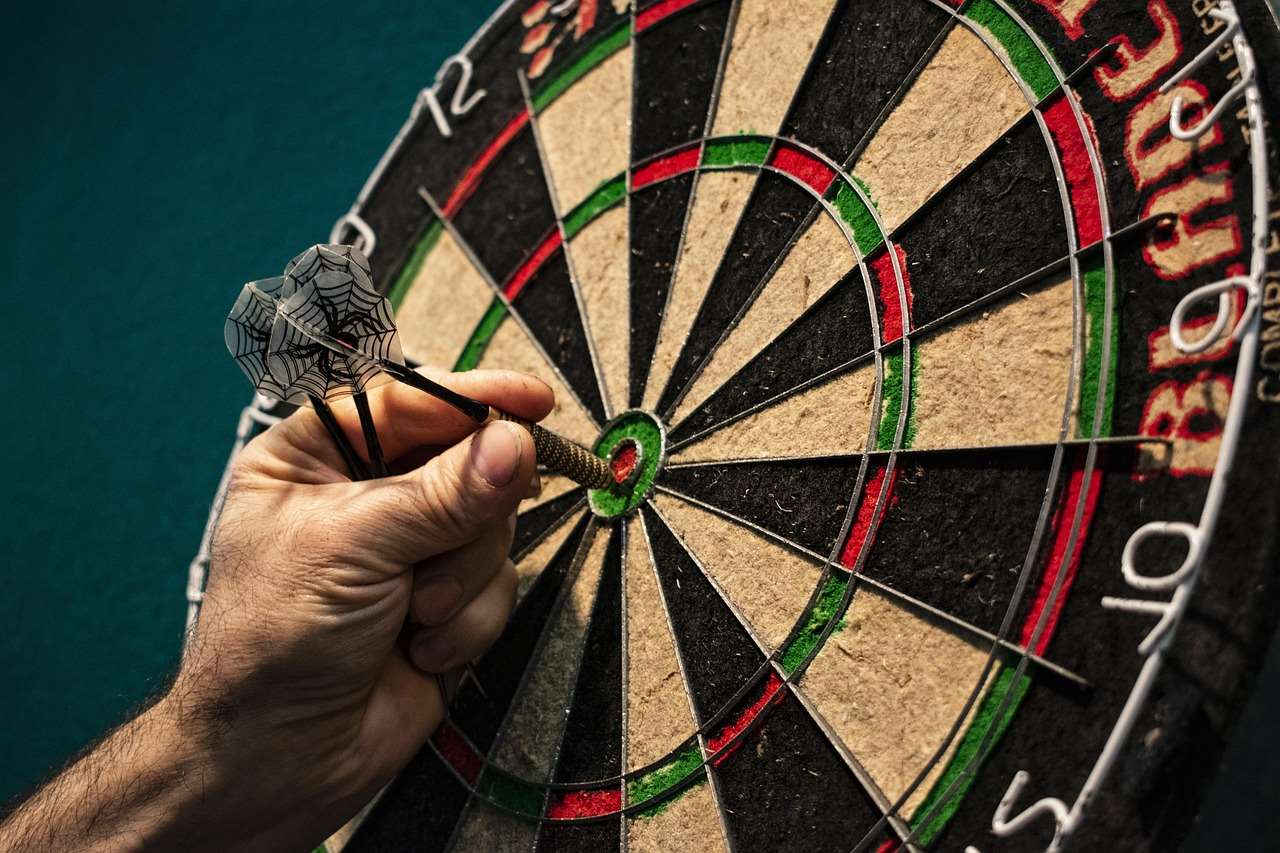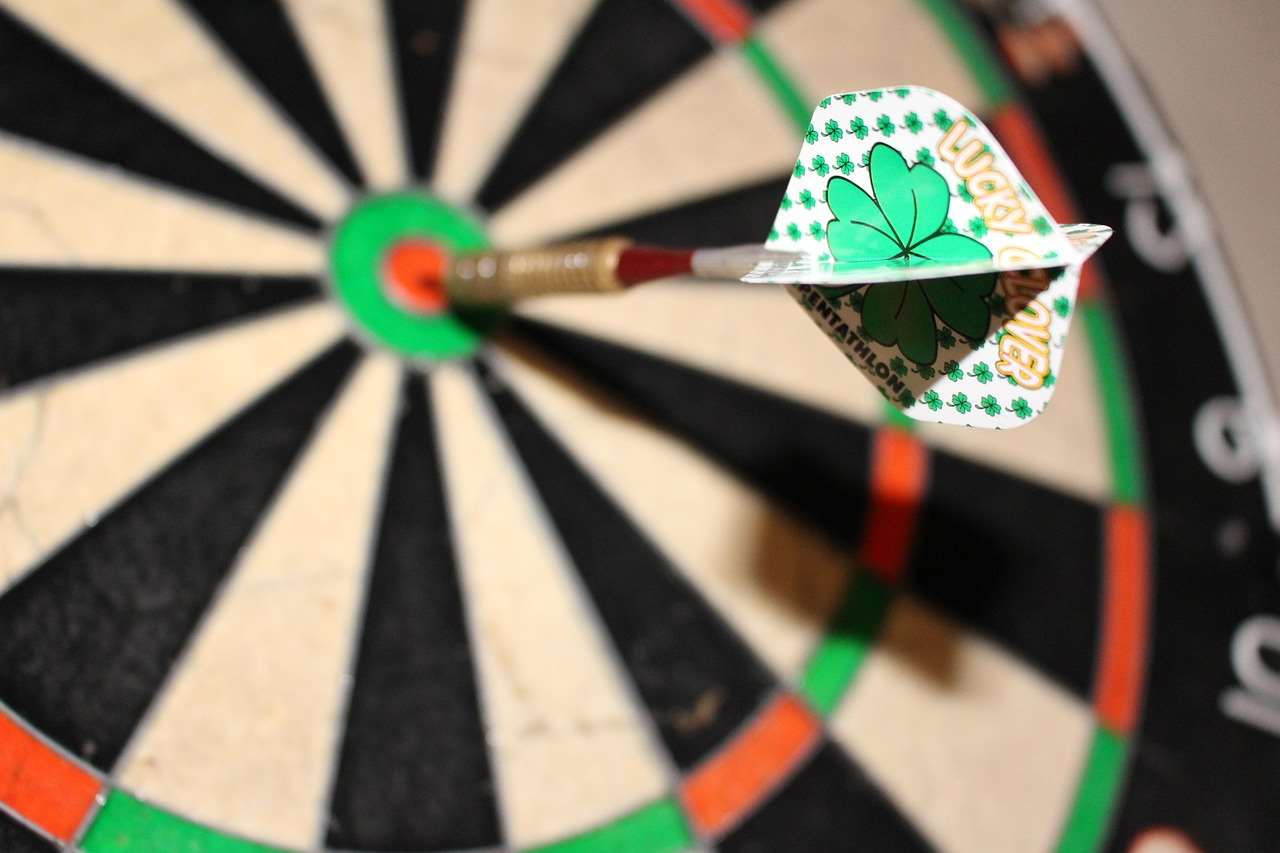The Darts Memorabilia Certification Process is crucial for establishing the authenticity and value of your treasured darts-related items, protecting them from fraud and preserving their historical significance. This article explores the ins and outs of this process, guiding you through identifying reputable authenticators, understanding grading criteria, and maximizing the value of your collection.
⚠️ Still Using Pen & Paper (or a Chalkboard)?! ⚠️
Step into the future! The Dart Counter App handles all the scoring, suggests checkouts, and tracks your stats automatically. It's easier than you think!
Try the Smart Dart Counter App FREE!Ready for an upgrade? Click above!
Understanding the Need for Darts Memorabilia Certification
In the world of collecting, provenance is everything. When it comes to darts memorabilia, proving that a signed dartboard was actually signed by Phil Taylor, or that a set of darts was used by Eric Bristow, significantly impacts its value and desirability. Without proper authentication, you risk owning a fake, or having difficulty selling your items for their true worth. The Darts Memorabilia Certification Process acts as a safeguard, providing a documented history and expert opinion on the item’s legitimacy.
Consider the potential pitfalls of purchasing unauthenticated items. You might unknowingly invest in a forgery, or find that the signature is not genuine. This can lead to disappointment, financial loss, and a tarnished reputation if you ever try to resell the item. Authentication mitigates these risks, giving you peace of mind and ensuring that your collection is built on a solid foundation of verified items.

The Key Elements of a Robust Darts Memorabilia Certification Process
A comprehensive Darts Memorabilia Certification Process involves several key steps, each designed to rigorously assess the authenticity and condition of the item. Here are the critical components:
- Expert Examination: A qualified expert or team of experts with specialized knowledge of darts history and memorabilia will examine the item. This involves scrutinizing signatures, materials, construction techniques, and any other relevant details.
- Provenance Research: Authenticators will trace the item’s ownership history as far back as possible. This may involve contacting previous owners, researching auction records, and consulting with darts historians.
- Comparative Analysis: The item will be compared to known authentic examples. This helps to identify any inconsistencies or red flags that might indicate a forgery.
- Documentation: A detailed report will be created, outlining the findings of the examination and research. This report will include photographs, descriptions, and any supporting documentation.
- Certification and Labeling: If the item is deemed authentic, it will be certified and assigned a unique identification number. A tamper-evident label will be affixed to the item, providing a visual confirmation of its authenticity.
A reputable authenticator will employ all of these steps to ensure the accuracy and reliability of their certification. Be wary of any service that shortcuts the process or relies solely on visual inspection without thorough research.
Finding Reputable Darts Memorabilia Authenticators
Choosing the right authenticator is crucial for ensuring the validity of the Darts Memorabilia Certification Process. Not all authenticators are created equal. Look for the following qualities:
- Experience and Expertise: The authenticator should have a proven track record and a deep understanding of darts memorabilia. Check their credentials, affiliations, and years of experience.
- Reputation: Research the authenticator’s reputation within the collecting community. Read reviews, ask for references, and check for any complaints or controversies.
- Transparency: A reputable authenticator will be transparent about their process and willing to answer your questions. They should be able to explain their methodology and provide detailed explanations for their conclusions.
- Insurance: Ensure that the authenticator has adequate insurance coverage to protect your items while they are in their possession.
- Fees: Understand the authenticator’s fees upfront. Get a clear breakdown of the costs involved and be wary of any hidden charges.
Some well-known and respected authentication services may specialize in sports memorabilia in general, and their expertise can often extend to darts-related items, especially if it involves autographs of famous darts players. Always do your due diligence before entrusting your valuable collectibles to any authenticator. Networking within a Darts Culture And Community Guide can also help in finding reputable authenticators.

Understanding Darts Memorabilia Grading Criteria
While authentication focuses on verifying the item’s genuineness, grading assesses its condition. The grade assigned to a piece of darts memorabilia significantly impacts its value. Common grading factors include:
- Condition of the Item: This is the most obvious factor. Is the item in pristine condition, or does it show signs of wear and tear? Look for damage, fading, stains, and other imperfections.
- Rarity: The scarcer the item, the higher its potential grade and value. Limited edition items, prototypes, and one-of-a-kind pieces are highly sought after.
- Historical Significance: Items associated with important events or legendary players tend to command higher grades.
- Eye Appeal: This is a subjective factor, but it refers to the item’s overall aesthetic appeal. A visually pleasing item will generally receive a higher grade.
- Completeness: If the item is part of a set, its completeness will affect its grade. A complete set will be worth more than an incomplete one.
Grading scales vary depending on the authenticator or grading service used. Familiarize yourself with the specific grading scale used by the service you choose. Common grading terms include Mint, Near Mint, Excellent, Very Good, and Good. Understanding these terms will help you assess the condition of your darts collectibles and determine their potential value.
Preparing Your Darts Memorabilia for Authentication
Proper preparation can streamline the Darts Memorabilia Certification Process and increase the chances of a positive outcome. Here are some tips for preparing your items:
- Gather Documentation: Collect any documentation that supports the item’s authenticity and provenance. This may include receipts, letters, photographs, and other relevant documents.
- Take High-Quality Photographs: Capture clear, high-resolution photographs of the item from all angles. This will help the authenticator assess its condition and identify any distinguishing features.
- Handle with Care: Avoid touching the item unnecessarily, as this can damage it. Wear gloves when handling delicate items such as signed photographs or vintage darts.
- Package Securely: Pack the item carefully to prevent damage during shipping. Use bubble wrap, packing peanuts, and a sturdy box.
- Insure the Shipment: Insure the shipment for the full value of the item. This will protect you in case of loss or damage during transit.
Providing the authenticator with as much information and documentation as possible will help them make an informed decision. Remember, the more information you can provide, the better the chances of a successful authentication of your darts memorabilia.

The Role of Third-Party Opinion in Darts Memorabilia Certification
Often, the Darts Memorabilia Certification Process can benefit from a third-party opinion, especially for exceptionally rare or valuable items. These experts can provide further insight into the item’s history, construction, and overall significance. Consider seeking advice from:
- Darts Historians: Historians specializing in darts history can provide valuable context and information about the item’s place in the sport’s timeline.
- Other Collectors: Connect with other collectors who specialize in darts memorabilia. They may have insights or knowledge that can help you authenticate your item.
- Auction Houses: Reputable auction houses often have experts who can assess the authenticity and value of your items.
A third-party opinion can strengthen your case for authentication and increase the item’s perceived value. It also provides an additional layer of security and peace of mind.
The Legal Aspects of Darts Memorabilia Authentication
The Darts Memorabilia Certification Process is not just about establishing authenticity; it also has legal implications. Selling counterfeit items can have serious legal consequences, including fines, lawsuits, and even criminal charges. By authenticating your items, you protect yourself from potential legal liabilities. It’s important to be aware of intellectual property rights when dealing with signed darts or other copyrighted materials. Ensure that you have the legal right to sell any items you own, especially if they involve trademarks or logos.
Maintaining the Value of Your Certified Darts Memorabilia
Once your darts memorabilia has been certified, it’s crucial to protect its value by storing it properly. Here are some tips:
- Store in a Cool, Dry Place: Avoid storing your items in direct sunlight, humidity, or extreme temperatures.
- Use Archival-Quality Materials: Use archival-quality boxes, sleeves, and other materials to protect your items from damage.
- Handle with Care: Continue to handle your items with care, even after they have been certified.
- Insure Your Collection: Ensure that your collection is adequately insured against loss or damage.
Proper storage and handling will help to preserve the condition of your certified darts memorabilia and maintain its value for years to come.

Leveraging Your Authenticated Darts Memorabilia
Once you’ve navigated the Darts Memorabilia Certification Process and secured authenticated items, you can leverage them in several ways:
- Display Them: Showcase your collection in a dedicated display case or room.
- Share Your Collection: Share your passion with other collectors at shows, conventions, or online forums.
- Sell or Trade: If you decide to sell or trade your items, authentication will significantly increase their value and desirability.
- Donate to a Museum: Consider donating your collection to a darts museum or historical society.
Authenticated darts memorabilia can be a source of pride, enjoyment, and even financial gain. Whether you choose to display, share, sell, or donate your collection, authentication ensures that its value and legacy are protected.
Future Trends in Darts Memorabilia Certification
The field of Darts Memorabilia Certification Process is constantly evolving. Expect to see advancements in technology, such as:
- Digital Authentication: Blockchain technology may be used to create tamper-proof digital certificates of authenticity.
- Advanced Imaging Techniques: Sophisticated imaging techniques may be used to detect forgeries and alterations with greater accuracy.
- Artificial Intelligence: AI-powered systems may be used to analyze signatures and other characteristics to identify authentic items.
Staying informed about these trends will help you navigate the future of darts memorabilia certification and ensure that your collection remains secure and valuable.

Conclusion: Embracing the Darts Memorabilia Certification Process
The Darts Memorabilia Certification Process is an essential step for any serious collector. It protects your investment, preserves the history of the sport, and provides peace of mind. By understanding the process, choosing reputable authenticators, and preparing your items carefully, you can maximize the value of your collection and enjoy the satisfaction of owning authentic pieces of darts history. Whether you are interested in How To Start A Darts League, are building How To Build A Darts Club, or you just want to cherish the history behind the sport, authenticating memorabilia is a vital task. Don’t leave your collection vulnerable to fraud – embrace the Darts Memorabilia Certification Process and safeguard your investment today. Start your journey to authentication by researching reputable services and preparing your treasured items for evaluation! Darts Culture And Community Guide
Hi, I’m Dieter, and I created Dartcounter (Dartcounterapp.com). My motivation wasn’t being a darts expert – quite the opposite! When I first started playing, I loved the game but found keeping accurate scores and tracking stats difficult and distracting.
I figured I couldn’t be the only one struggling with this. So, I decided to build a solution: an easy-to-use application that everyone, no matter their experience level, could use to manage scoring effortlessly.
My goal for Dartcounter was simple: let the app handle the numbers – the scoring, the averages, the stats, even checkout suggestions – so players could focus purely on their throw and enjoying the game. It began as a way to solve my own beginner’s problem, and I’m thrilled it has grown into a helpful tool for the wider darts community.